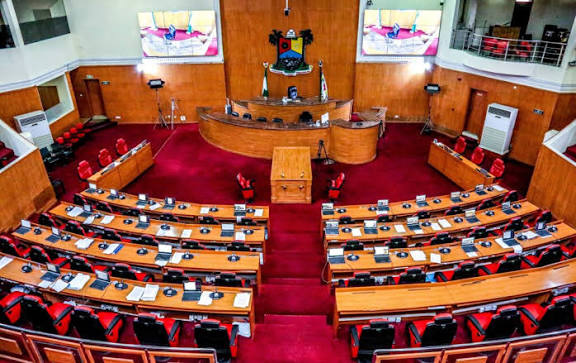The Socio-Economic Rights and Accountability Project has filed a lawsuit against the Nigerian National Petroleum Company Limited for “failure to disclose details of Nigeria’s daily oil production, exportation, and total amounts of revenues generated from oil since the removal of petrol subsidy in May 2023.”
The Federal High Court in Abuja received a lawsuit filed by SERAP on Friday under the case number FHC/ABJ/CS/1719/2023.
The advocacy group had already demanded NNPCL chairman Mele Kyari to reveal the amount of oil revenue that has been transferred to the public coffers following the removal of the fuel subsidy.
The SERAP concluded that there is a valid public interest in revealing the information sought in a letter dated December 9, 2023, signed by Kolawole Oluwadare, the deputy director of the organization.
In the letter, SERAP gave NNPCL seven days to reply and furnish the public with an audit on the daily production of oil and the money made from oil revenues since the subsidy was removed.
The group launched a lawsuit, arguing that the move was in the public interest, after they failed to reply to the letter.
The lawsuit, which was filed on behalf of SERAP by attorneys Andrew Nwankwo and Kolawole Oluwadare, said, among other things:
“Nigeria’s daily oil output, exports, and associated income have been mostly shrouded in secrecy.
“Disclosing the number of barrels of oil produced and exported each day, as well as the revenues generated and remitted to the public treasury, would also ensure that the NNPC operates within the law.
“Even with Nigeria’s vast oil wealth, the general populace has not benefited much from the country’s oil wealth, mostly due to the pervasive systemic corruption and the impunity of those who engage in it.
According to the lawsuit, public institutions and personnel are required by Section 15(5) of the Nigerian Constitution 1999 (as amended) to eradicate all forms of corruption and power abuse. The Nigerian Constitution additionally states in Section 16(2) that “the nation’s material resources are harnessed and distributed to serve the common good.”
“The NNPCL is clearly required by Section 13 of the Nigerian Constitution 1999 to adhere to, follow, and implement the terms of Chapter 2 of the constitution.
“Under the UN Convention against Corruption and the African Union Convention on Preventing and Combating Corruption, Nigeria has made legally enforceable promises to uphold accountability and transparency in the administration of public funds.”
The NNPCL is legally required under Articles 5 and 9 of the UN Convention against Corruption to guarantee the appropriate administration of public funds and affairs. These promises must be kept in full and respected.
According to reports, the NNPCL has also neglected to release information about the money received from the production and export of oil as well as the sum paid to the national treasury as mandated by Nigerian legislation.








